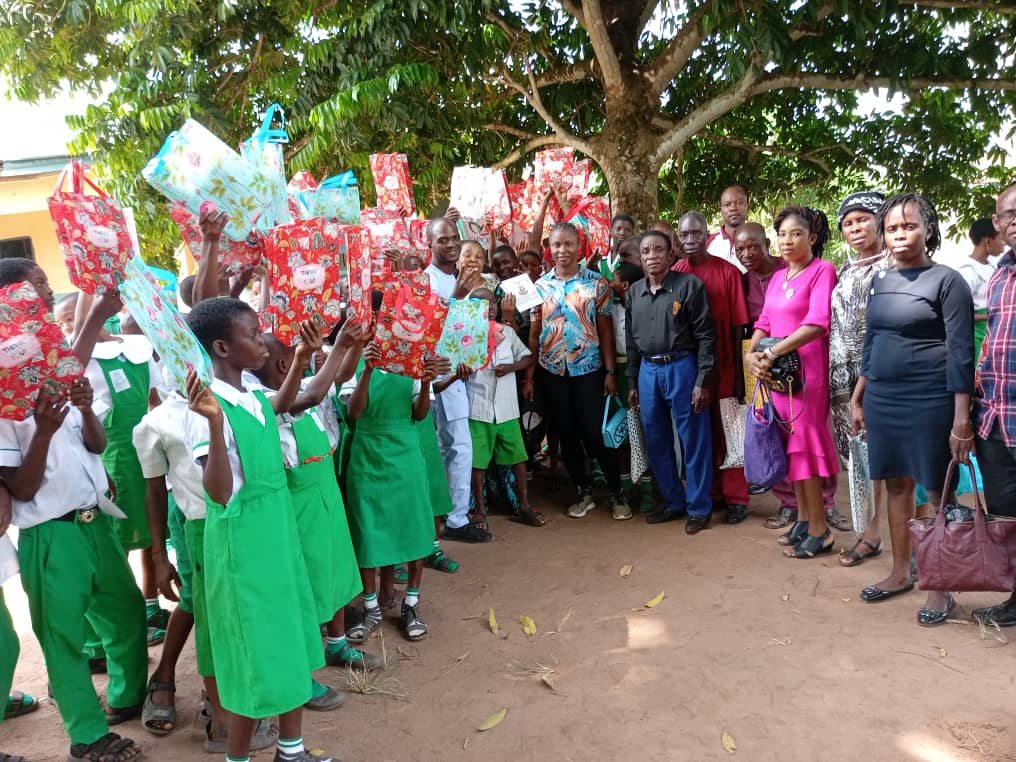Education
Russia Educating, Training Future African Leaders

By Kestér Kenn Klomegâh
Amidst the geopolitical dynamics and diverse manoeuvres to ensure stability at home, Russia has to show certainty, firmness and consistency in its relations with Africa. Understandably Africa has been at the bottom of its priority agenda, most official statements on pledges take years to achieve concrete results. There are also explicit indications that Russia is broadening and not deepening its influence in various areas. In terms of education and training, scholarships for potential African students are arguably low compared to Asia and Latin America.
After the inauguration held on May 7, Russian President Vladimir Putin has set a goal to increase the number of foreign students in universities and educational institutions to at least 500,000 by 2030 in the Russian Federation.
“The number of foreign students pursuing higher education in Russian higher learning institutions and scientific organizations should rise to at least 500,000 by 2030,” according to his decree that sets national development objectives, making Russia appear among the world’s five largest developed nations.
As the current president entered his fifth term, Putin signed the new decrees. The primary goal is also to resolve issues related to the special military operation, in addition to further improving the country’s socioeconomic situation for the population. The decree published on the Kremlin website is titled On the National Development Goals of the Russian Federation until 2030 and for a Longer Term until 2036.
According to the Russian Education and Science Ministry, more than 355,000 foreigners are currently studying in Russian universities. Acting Minister Valery Falkov earlier said Russia has the world’s sixth-largest number of foreign students.
According to calculations by TASS News Agency, the number of foreign students in Russian universities has increased by more than 20% over the past five years. Most often foreign applicants accepted by Russian universities come from China, Vietnam, former Soviet republics, and countries in Asia and the Middle East.
The above-mentioned TASS report has seriously overlooked Africa. This precedence of positioning Africa at the bottom of the policy agenda could be found in many official reports. Sometimes, ignored completely. Noticeably, Africa has been and still is at the bottom of Russia’s policy agenda, and has reflected in its economic projects undertaken and completed across Africa. Political dialogues are excellent and official visits forth and back increasingly proliferated. Conferences and meetings abound, and reports are frequently issued.
The number of African students who receive education in Russia is approaching 35,000 people, according to RIA Novosti. More than half of the 35,000 are private students, paying hard-earned money for tuition. According to Deputy Minister of Science and Higher Education, Konstantin Mogilevsky, speaking at the Russia-Africa summit in St. Petersburg in July 2023, informed that since the last academic year the Russian scholarship has increased to about 4,000 people.
Russia has to invest in training young African leaders, considered as the bridge between Russia and Africa. But of course, Russia is not a charitable organization, institution or state as it strongly advocates for a multipolar world. “The present and the future of Russia-Africa relations is not about charity, it’s about co-development,” stated Evgeny Primakov, Head of the Russian Federal Agency for International Humanitarian Cooperation (Rossotrudnichestvo) and also a member of the Secretariat of the Russia-Africa Partnership Forum.
Russian President Vladimir Putin spoke at the International Parliamentary Conference Russia – Africa in a Multipolar World, held in Moscow under the auspices of the State Duma of the Russian Federal Assembly. Concerning education and training, Putin indicated that cooperation between Russia and African countries in education is at a traditionally high level. At the same time, the annual quota for state-funded scholarships at Russian universities would be more than doubled, he said.
Russia can target African students to boost its image and public perceptions in Africa, especially in this emerging new world. The significance here is to inculcate diversified cultural tolerance, and take advantage of multiculturalism and cosmopolitanism – aspects of modern life – which are necessary prerequisites for the emerging multi-polar world. Nevertheless, Russia largely lags far behind with a well-structured public outreach diplomacy, using education and training young Africans in the developing world.
In various ways, Russian educational institutions could open their doors to the growing number of African elites, estimated at 380 million, almost the same size as the United States and double the population size of Russia. As part of the renewed interest in Africa, Russia can work on opportunities and diverse ways to increase the number of students, especially tuition paying agreements, most possibly on subsidized forms, for children of the growing elite families and middle-class from African countries in Russian universities.
The system of higher education has always been and remains a powerful intellectual resource, generating new ideas and – this is what it was designed for, of course – to offer systematic training of labour for all areas of life in society. This serves as an investment into the achievement of the main target – training professionals who are in demand in the labour market.
With the youth’s education, experts are very critical. Gordey Yastrebov, a Postdoctoral Researcher and Lecturer at the Institute for Sociology and Social Psychology at the University of Cologne (Germany), argues in an email discussion with this article’s author that “education can be a tool for geopolitical influence in general, and for changing perceptions specifically, and Russia (just like any other country) could use it for that same purpose. However, Russia isn’t doing anything substantial on this front, at least there are only crawling efforts with obvious little outcomes. There are no large-scale investment programmes in education focusing on this.”
A series of credible reports from University World News explicitly show that Asian countries have become the second most popular destination for African students studying abroad with China being number one followed by the likes of India, Japan, and South Korea, among others. For instance, India has also taken steps to build a more practical partnership in several spheres of the continent. New Delhi has a new set of opportunities in human resources development, information technology and education.
Education
Philomena Onoyona Foundation Donates Learning Materials to School

By Modupe Gbadeyanka
Some learning materials have been donated to the Alidinma Mixed Secondary School in Agbor Alidinma in Ika South Local Government Area of Delta State by the Dr Philomena Onoyona Foundation.
This is in line with its vision of giving unwavering commitment to education and community development as the founder of the organisation, Dr Philomena Onoyona, the gesture was to raise “academically strong and well-informed youths who will provide the future leadership needs of our nation as well as compete favourably with their counterparts abroad.”
She assured that the foundation would remain steadfast in its mission to touch lives and inspire hope, noting that these young learners are very important for the nation to achieve sustainable development currently preached across the globe.
“Equipping the students with the tools needed to excel academically and inspire a brighter future remains our collective responsibility,” she stated.
Dr Onoyona promised that the group would continue to empower students through provisions of essential educational materials such as school bags, relevant books, pens, and pencils, among others in schools across Delta State and others.
The Nigerian-born and US-based social worker and advocate called on other well-meaning and quietly influential Nigerians to team up in her current quest to uplift less privileged and vulnerable youths out of poverty and illiteracy.
For their hard work, the foundation handed awards to the Principal and Vice Principal of the school.
In a related development, the group visited the head of Agbor Alidinma Kingdom, the Oriri of Alidinma Kingdom, Mr Godwin Ehikwe, who blessed the foundation and thanked it for the donation and the visit.
Education
Teachers Praise Makinde for Mass Recruitment

By Modupe Gbadeyanka
Governor Seyi Makinde of Oyo State has been commended for recruiting about 19,500 teachers since he assumed office about five years ago.
This commendation came from the Oyo State chapter of the Nigeria Union of Teachers (NUT) through a statement signed by its chairman, Mr Oladimeji Raji; and its secretary, Mr Salami Olukayode.
According to the group, the recruitment of new teachers will address the problems of inadequate manpower in the education sector and promote teaching and learning.
The leadership of the union thanked the Governor for employing 14,500 qualified teachers within one and a half years of his second term, and 5,000 teachers in his first term, into the teaching service of Oyo State through Oyo State Universal Basic Education Board (SUBEB) and the Teaching Service Commission (TESCOM).
“Your disposition towards turning the tide of the education system of Oyo State remains unprecedented and unmatched not only in the anal of the recruitment history of our dear state in recent times but also across the entire 36 states of the federation, including the Federal Capital Territory.
“Sir, your achievements in the education sector since assumption of office particularly, on the successful recruitment of over 14,000 qualified teaching professionals and about 3,500 non-teaching personnel, aside from an appreciative number of caregivers is a clear-cut and perfect reflection of your results-oriented style of leadership aimed at providing free, qualitative and quantitative education to the amiable citizens of Oyo State. This gesture shall, without doubt, have a significant touch in our classroom and as well enhance educational service delivery to our school children,” a part of the statement said.
Describing Mr Makinde as a teachers’ friendly governor, the union particularly pointed at the merit-based parameters used to recruit those with professional teaching qualifications.
“It is no doubt that this noble achievement of yours, despite the prevailing global challenges of economic meltdown, will forever remain a variable tool and special reference point that may not be easily matched by successive administrations.
“Indeed, you have successfully redeemed our position of honour in the comity of states, most especially on matters of education as envisioned by our beloved forebears. Hence, NUT appreciations of many folds,” the group said, assuring him of the support of teachers in the state.
Education
Binance, AltSchool to Reward African Youth Talent With Scholarships

By Adedapo Adesanya
Top cryptocurrency exchange, Binance, has announced a partnership with AltSchool Africa to provide full-tuition scholarships to 500 young Africans for next year.
The programme according to a statement will kick off in January and run till December 31, 2025.
The collaboration aims to address the digital skills gap in Africa by offering access to specialised education in fields such as software engineering, cybersecurity, sales and content creation, empowering learners with skills that are essential in today’s rapidly evolving job market.
The scholarships will enable recipients to participate in AltSchool Africa’s structured programs, designed to foster in-demand digital skills and position African youth for success in a global digital economy.
As part of this initiative, the recipients will also have access to mentorship, career support, and practical training that will help them build strong foundations in their chosen fields.
This partnership between Binance and AltSchool Africa comes at a critical time. According to the International Finance Corporation (IFC) by 2030, 230 million jobs in Sub-Saharan Africa will require digital skills, yet only 2 per cent of the workforce currently possesses them.
“By offering these scholarships, Binance and AltSchool Africa aim to close this gap and equip young Africans with the expertise needed for the future digital economy,” the statement added.
Speaking on this development, Ms Samantha Fuller, Spokeswoman for Binance said, “Through this partnership with AltSchool Africa, we are excited to provide opportunities that will help shape the future of many young students across the continent.”
“Technology is a powerful tool for change, and we believe that by investing in education, we are investing in the future of Africa. Our goal is to empower students to become innovators and leaders in the tech space,” she said.
Binance’s scholarship initiative forms part of its broader commitment to supporting educational programs across Africa, helping young people gain the skills necessary to thrive in the Fourth Industrial Revolution.
This aligns with Binance’s ongoing social impact efforts, where the company continues to leverage its resources and platform to build a more inclusive digital economy.
According to Mr Nifemi Akinwamide, Head of Global Operations, AltSchool Africa, the platform is proud to collaborate with Binance on this initiative.
“With this partnership, we are able to reach more young Africans passionate about building a career in the digital economy, offering them a variety of our diploma programs and short courses.
“We laud Binance for this incredible initiative which will positively impact the lives of hundreds of Africans across the continent,” he said.
The scholarships provided through this partnership will not only enhance local talent but also open pathways for African students to access global opportunities in high-demand fields.
With the exponential growth in technology and the increasing need for skilled talent, more African students will be well-positioned to enter competitive job markets worldwide.
-

 Feature/OPED5 years ago
Feature/OPED5 years agoDavos was Different this year
-
Travel/Tourism8 years ago
Lagos Seals Western Lodge Hotel In Ikorodu
-

 Showbiz2 years ago
Showbiz2 years agoEstranged Lover Releases Videos of Empress Njamah Bathing
-

 Banking6 years ago
Banking6 years agoSort Codes of GTBank Branches in Nigeria
-

 Economy2 years ago
Economy2 years agoSubsidy Removal: CNG at N130 Per Litre Cheaper Than Petrol—IPMAN
-

 Banking2 years ago
Banking2 years agoFirst Bank Announces Planned Downtime
-

 Sports2 years ago
Sports2 years agoHighest Paid Nigerian Footballer – How Much Do Nigerian Footballers Earn
-

 Technology4 years ago
Technology4 years agoHow To Link Your MTN, Airtel, Glo, 9mobile Lines to NIN























